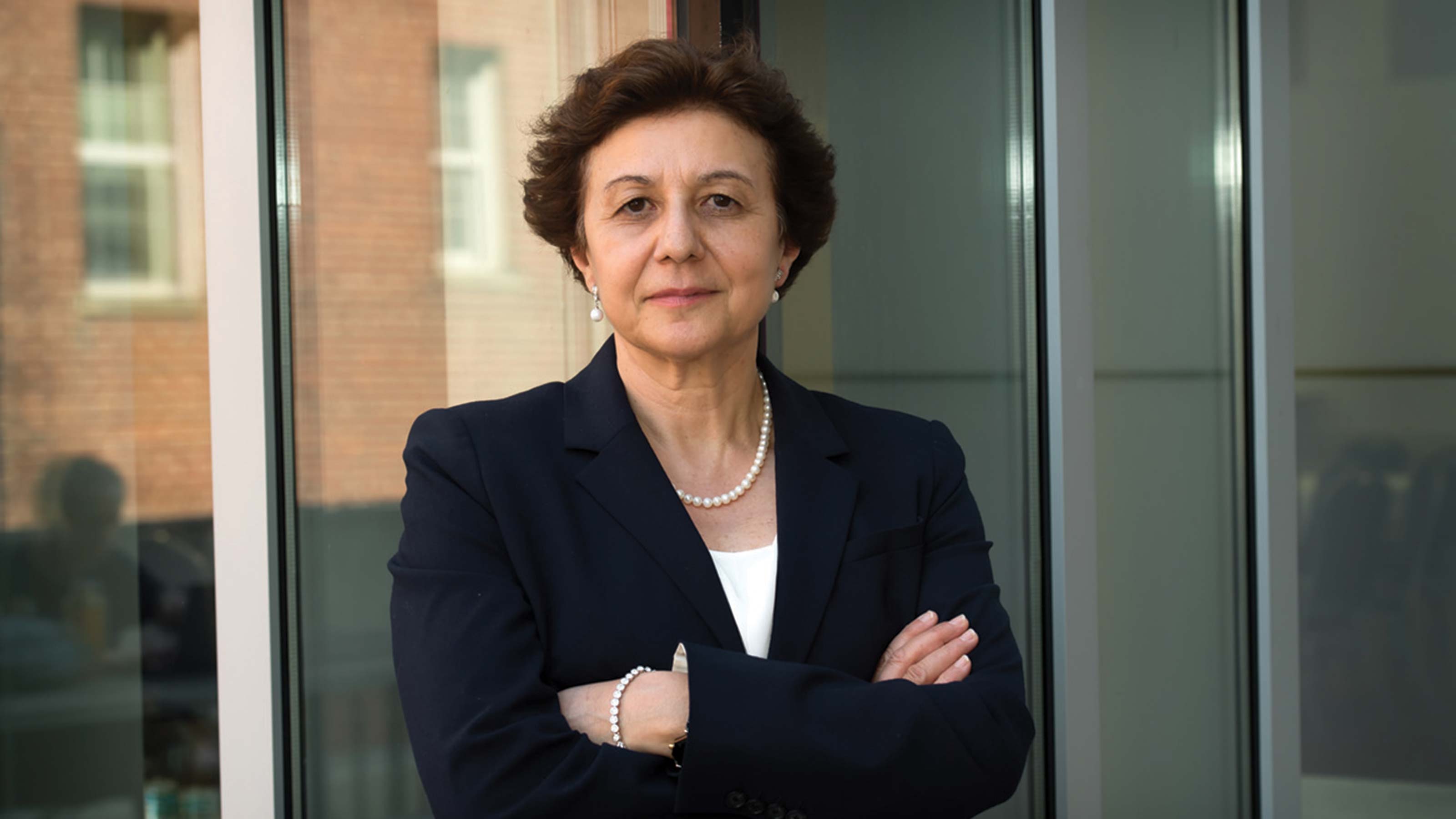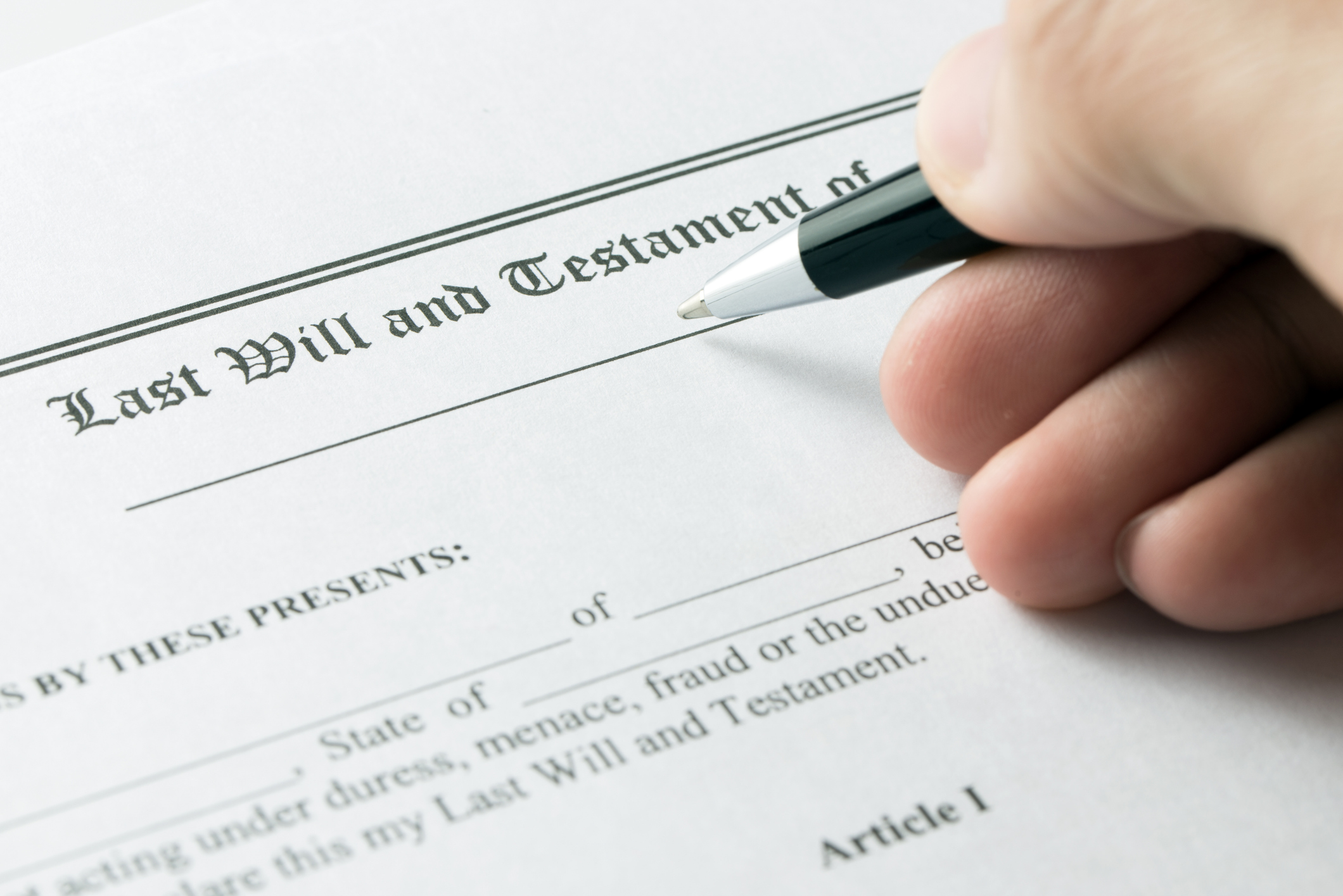Charitable Giving May Be in Your Genes
In high-net-worth households, women are more likely to make their own decisions about where to donate.


Profit and prosper with the best of Kiplinger's advice on investing, taxes, retirement, personal finance and much more. Delivered daily. Enter your email in the box and click Sign Me Up.
You are now subscribed
Your newsletter sign-up was successful
Want to add more newsletters?

Delivered daily
Kiplinger Today
Profit and prosper with the best of Kiplinger's advice on investing, taxes, retirement, personal finance and much more delivered daily. Smart money moves start here.

Sent five days a week
Kiplinger A Step Ahead
Get practical help to make better financial decisions in your everyday life, from spending to savings on top deals.

Delivered daily
Kiplinger Closing Bell
Get today's biggest financial and investing headlines delivered to your inbox every day the U.S. stock market is open.

Sent twice a week
Kiplinger Adviser Intel
Financial pros across the country share best practices and fresh tactics to preserve and grow your wealth.

Delivered weekly
Kiplinger Tax Tips
Trim your federal and state tax bills with practical tax-planning and tax-cutting strategies.

Sent twice a week
Kiplinger Retirement Tips
Your twice-a-week guide to planning and enjoying a financially secure and richly rewarding retirement

Sent bimonthly.
Kiplinger Adviser Angle
Insights for advisers, wealth managers and other financial professionals.

Sent twice a week
Kiplinger Investing Weekly
Your twice-a-week roundup of promising stocks, funds, companies and industries you should consider, ones you should avoid, and why.

Sent weekly for six weeks
Kiplinger Invest for Retirement
Your step-by-step six-part series on how to invest for retirement, from devising a successful strategy to exactly which investments to choose.
Marlo Thomas says that her father, comedian Danny Thomas, never explicitly prepared her to take on the task of supporting St. Jude Children’s Research Hospital, the institution he founded in Memphis. “Dad made it clear to all of us kids that we didn’t have to pick up the torch,” Thomas told me recently in an interview. So after he died, she figured she’d get on with her career as an actress and author.
But it turns out that her father was “psychologically brilliant.” The first time she visited the hospital after his death, she says, she caught the St. Jude fever and elected to carry on his legacy. “It’s in my DNA.” Thomas, who is now the national outreach director for St. Jude, shared her inspiring story at a symposium sponsored by Auburn University’s Women’s Philanthropy Board. The board has raised more than $635,000 to date to support the university’s College of Human Sciences. Through its program on gender, wealth and philanthropy, the college hopes to cultivate future generations of women philanthropists.
That’s an achievable goal. Women increasingly have the wherewithal to give—and the inclination to give it. Research at the Women’s Philanthropy Institute, located at the Lilly Family School of Philanthropy at Indiana University, shows that single women at all income levels are more likely to give to charity than single men, and that they contribute more. “Women are socialized early in life to take care of others, so they’re more motivated by empathy and altruism,” says Debra Mesch, director of the institute. “And they tend to spread their giving among a number of causes.” Men are more likely to have personal and practical reasons for giving—to get a tax deduction, for example. They’re also more likely to focus their giving on fewer causes and to write a check. Women tend to get involved. Thomas says she notices those differences in her fund-raising efforts for the hospital. “Men ask financial questions about how much goes to administration and research, and women want to know how we counsel families,” she says.
From just $107.88 $24.99 for Kiplinger Personal Finance
Become a smarter, better informed investor. Subscribe from just $107.88 $24.99, plus get up to 4 Special Issues

Sign up for Kiplinger’s Free Newsletters
Profit and prosper with the best of expert advice on investing, taxes, retirement, personal finance and more - straight to your e-mail.
Profit and prosper with the best of expert advice - straight to your e-mail.
Among married couples, about 75% make joint decisions regarding charitable giving. But that proportion drops to about 50% in high-net-worth households, where women are more likely to make their own decisions and to be more strategic.
Make an impact. Surveys also find that women investors are more interested than men in doing well by doing good. At the Parnassus funds, which emphasize socially conscious investing, women make up more than 70% of visitors to the firm’s website. So how can women make the most of their giving? First off, remember that charity begins at home—or, as Thomas puts it, “you need to get your life in order before you can afford to give to others.” Keep track of your giving, and take advantage of tax breaks. If you want to entrust your retirement savings to a socially conscious fund, pick one with a top track record, such as Parnassus Mid-Cap or Vanguard Health Care, members of the Kiplinger 25, our favorite no-load funds.
To ensure your giving has a more direct impact, consider opening a donor-advised fund with a company such as Fidelity, Schwab or Vanguard. You donate cash or other assets to the fund and decide later which charities to support.Or do what my cousin Pauline Nist did and join a giving circle. Pauline, who retired last year as a general manager with Intel, belongs to a group of about 50 Silicon Valley women, each of whom contributes $1,000 a year to Hope to Health, which is affiliated with the El Camino Hospital Foundation, in Mountain View, Calif. Every year, the women vote on how to spend the money; this year’s focus will be on mental health programs. “Some people really want to be active” in a charity, says Pauline. “But if all you want to do is write the check, that’s okay, too.”
Profit and prosper with the best of Kiplinger's advice on investing, taxes, retirement, personal finance and much more. Delivered daily. Enter your email in the box and click Sign Me Up.

Janet Bodnar is editor-at-large of Kiplinger's Personal Finance, a position she assumed after retiring as editor of the magazine after eight years at the helm. She is a nationally recognized expert on the subjects of women and money, children's and family finances, and financial literacy. She is the author of two books, Money Smart Women and Raising Money Smart Kids. As editor-at-large, she writes two popular columns for Kiplinger, "Money Smart Women" and "Living in Retirement." Bodnar is a graduate of St. Bonaventure University and is a member of its Board of Trustees. She received her master's degree from Columbia University, where she was also a Knight-Bagehot Fellow in Business and Economics Journalism.
-
 Dow Adds 1,206 Points to Top 50,000: Stock Market Today
Dow Adds 1,206 Points to Top 50,000: Stock Market TodayThe S&P 500 and Nasdaq also had strong finishes to a volatile week, with beaten-down tech stocks outperforming.
-
 Ask the Tax Editor: Federal Income Tax Deductions
Ask the Tax Editor: Federal Income Tax DeductionsAsk the Editor In this week's Ask the Editor Q&A, Joy Taylor answers questions on federal income tax deductions
-
 States With No-Fault Car Insurance Laws (and How No-Fault Car Insurance Works)
States With No-Fault Car Insurance Laws (and How No-Fault Car Insurance Works)A breakdown of the confusing rules around no-fault car insurance in every state where it exists.
-
 My Four Pieces of Advice for Women Anxious About Handling Money
My Four Pieces of Advice for Women Anxious About Handling MoneyTalking about money can help you take control of your finances.
-
 Talking Money With Your Spouse
Talking Money With Your Spousepersonal finance These should be important conversations that will be helpful in the long run.
-
 Readers Share Tips for Raising Money Smart Kids
Readers Share Tips for Raising Money Smart KidsRaising Money-Smart Kids What's the right age for a child to have their own credit card? Opinions vary.
-
 How to Boost Your Financial Savvy
How to Boost Your Financial SavvyWomen & Money Women need to know how financial knowledge can help them take care of their families and themselves.
-
 What Kids Need to Know About Finances
What Kids Need to Know About FinancesWomen & Money In a digital world, it's even more critical to teach children how to handle cold, hard cash.
-
 Estate Planning Got You Down? Start With a Will
Estate Planning Got You Down? Start With a WillFinancial Planning Estate planning may feel overwhelming. Start with a will and the rest will fall into place.
-
 Fresh Voices in Personal Finance
Fresh Voices in Personal FinanceWomen & Money An impressive number of young women have entered the personal finance field via blogs, websites and social media.
-
 A Salute to Money Smart Moms
A Salute to Money Smart Momssavings Today's mothers are in a perfect position to share their experiences in the workforce and as investors.